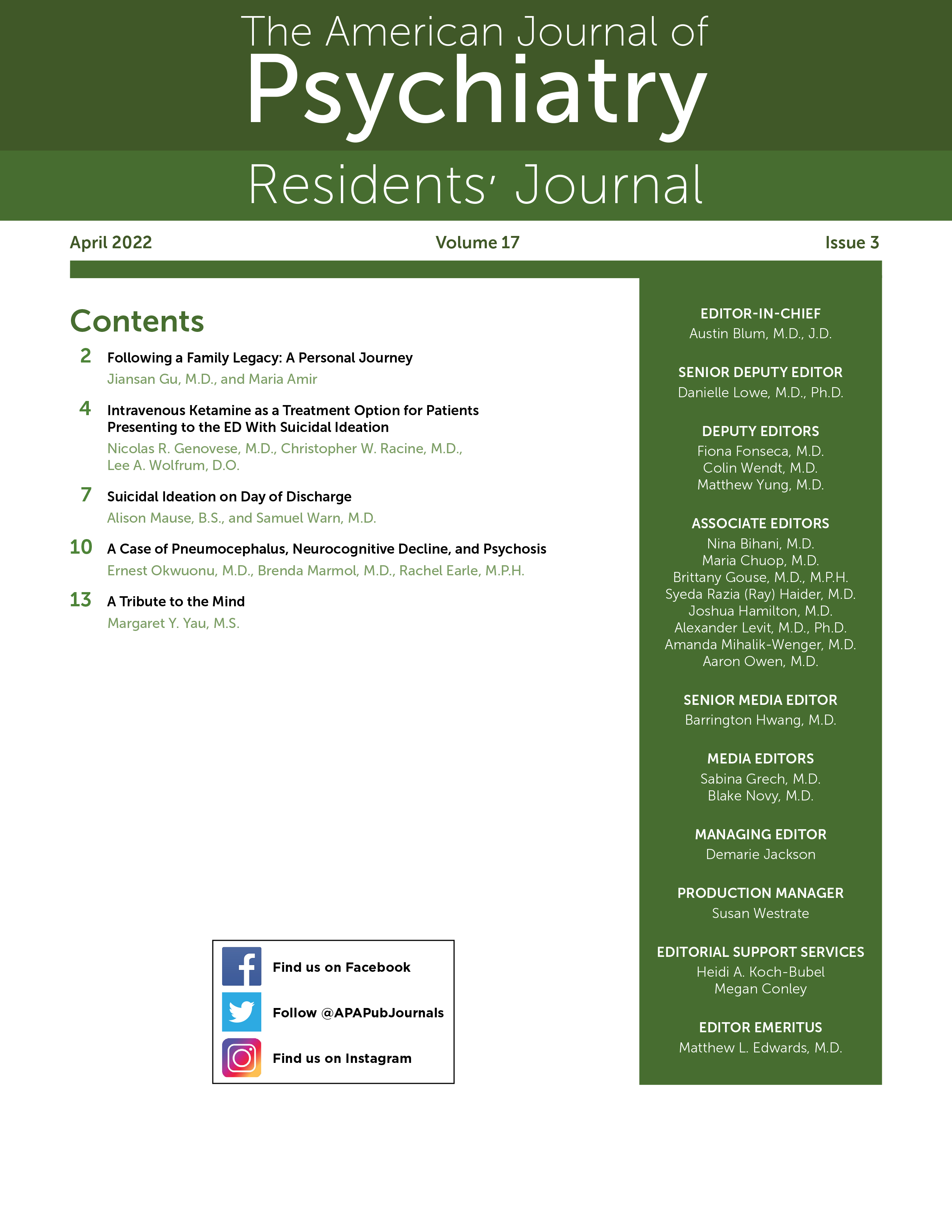Arts and CultureFull Access
Published Online:29 Apr 2022https://doi.org/10.1176/appi.ajp-rj.2022.170305
The Mind
an emergent property
of the most complex organ
of all living beings—the brain,
billions of neurons firing, firing;
electrical impulses vrooming, vrooming;
chemical messengers drift across
trillions of nanoscale connections—
empowers all that makes us human:
Emotions
vary as the vibrant colors of a transient rainbow—
Ire, fear, joy, grief, surprise, disgust, contempt—
rays of laughter, raindrops of sorrow,
tides of anxiety ebb and flow.
Who could forecast one’s fickle moods,
or calm these undulating waves,
or stop the howling wind
even before they all begin?
Thoughts
positive or negative, bring
cheerful smiles or desolate tears.
Conscious quests for innovation
spark flashes of insights;
subconscious insecurities
spawn palpable apprehension.
Twisted, convoluted delusions detach one
from reality, seeing, hearing, feeling
non-existent entities materialized within
an ostensibly harmonious universe.
Who could decipher the brain’s perplexing language,
the mind’s dominating power over
our perception of reality and surreality,
sieving through entangled webs of intangible abstraction?
Actions
seemingly simple as a
blink of an eye, flick of a finger,
or endlessly enchanting as
elegant arabesques, intricate somersaults,
virtuoso performances, driven by
symphonies of interacting neurons.
Acts of kindness engender warmth
that enlivens the entire atmosphere;
acts of violence induce darkness
that permeates the sweetest dreams,
cast ponderous shadows of dread
that constant vigilance cannot lift.
Who could imagine that a single organ
of white and gray can impact so much,
enable emotions, thoughts, and
actions that define one’s destiny,
let alone shape the future of the universe?
Who will tackle the disorders of the mind,
empathetically listen and observe
its workings hour after hour,
unlocking the link between
the tangible and the intangible?



